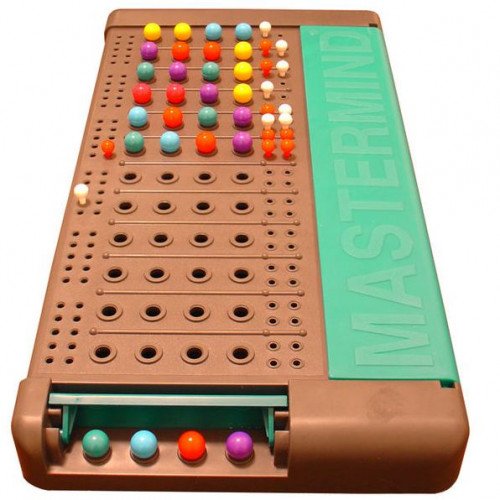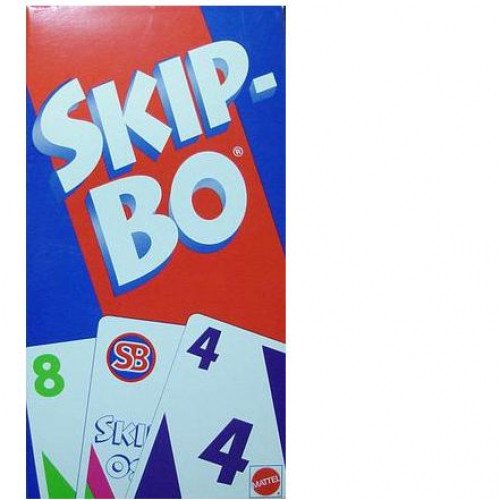MASTERMIND VS SKIP-BO

MASTERMIND
Mastermind or Master Mind is a code-breaking game for two players. The modern game with pegs was invented in 1970 by Mordecai Meirowitz, an Israeli postmaster and telecommunications expert.It resembles an earlier pencil and paper game called Bulls and Cows that may date back a century. The game is based on an older, paper based game called Bulls and Cows. A computer adaptation of it was run in the 1960s on Cambridge University’s Titan computer system, where it was called 'MOO'. This version was written by Frank King. There was also another version for the TSS/8 time sharing system, written by J.S. Felton and finally a version for the Multics system at MIT by Jerrold Grochow. The modern game with pegs was invented in 1970 by Mordecai Meirowitz, an Israeli postmaster and telecommunications expert. Meirowitz presented the idea to many major toy companies but, after showing it at the Nuremberg International Toy Fair, it was picked up by a plastics company, Invicta Plastics, based near Leicester, UK. Invicta purchased all the rights to the game and the founder, Edward Jones-Fenleigh, refined the game further. It was released in 1971–2. Since 1971, the rights to Mastermind have been held by Invicta Plastics. (Invicta always named the game Master Mind.) They originally manufactured it themselves, though they have since licensed its manufacture to Hasbro worldwide, with the exception of Pressman Toys and Orda Industries who have the manufacturing rights to the United States and Israel, respectively. Starting in 1973, the game box featured a photograph of a white man in a white jacket seated in the foreground, with a young Asian woman of high caste standing behind him with the golden symbols of office visible on her sari, denoting the power and intellect behind the throne. The two amateur models (Bill Woodward and Cecilia Fung) reunited in June 2003 to pose for another publicity photo.
Statistics for this Xoptio

SKIP-BO
Skip-Bo is a commercial version of the card game Spite and Malice, a derivative of Russian Bank (also known as Crapette or Tunj). In 1967, Minnie Hazel "Skip" Bowman (1915–2001) of Brownfield, Texas, began producing a boxed edition of the game under the name SKIP-BO. In 1980 the game was purchased by International Games, which was subsequently bought by Mattel in 1992. A mobile version of the game for iOS was released by Magmic in September, 2013. There is a new version called "SKIP-BO Mod" that comes in a white and blue case. Two to four people can play at a time as individuals, or, six or more players in teams (no more than three partnerships). The object of the game is to be the first player or team to play out their entire stock pile(s). The player with the middle age goes first. Each player is dealt 30 cards (recommended 10-15 for faster gameplay) for their pile with only the top card visible, and a hand of five cards, and the remaining cards are placed face down to create a common draw pile. The shared play area allows up to four build piles, which must be started using either a "1" card or a Skip-Bo, and each player also has up to four personal discard piles. Each turn the active player draws until they have five cards in hand, though there are cases of not drawing more cards to equal five cards, instead doing a draw of a certain number of cards. They must play either the next card in sequential order or a wild Skip-Bo card, using either cards in hand, the top card of their stock pile, or the top card of any of their four discard piles. If the player can play all five cards from their hand, they draw five more and continue playing. When no more plays are available, the player discards one card to either an empty discard pile or on top of an existing one and play passes to the next player. When a build pile reaches 12, it is removed from the board and that space becomes empty for another pile to be started; play continues until one player has played their final start card.